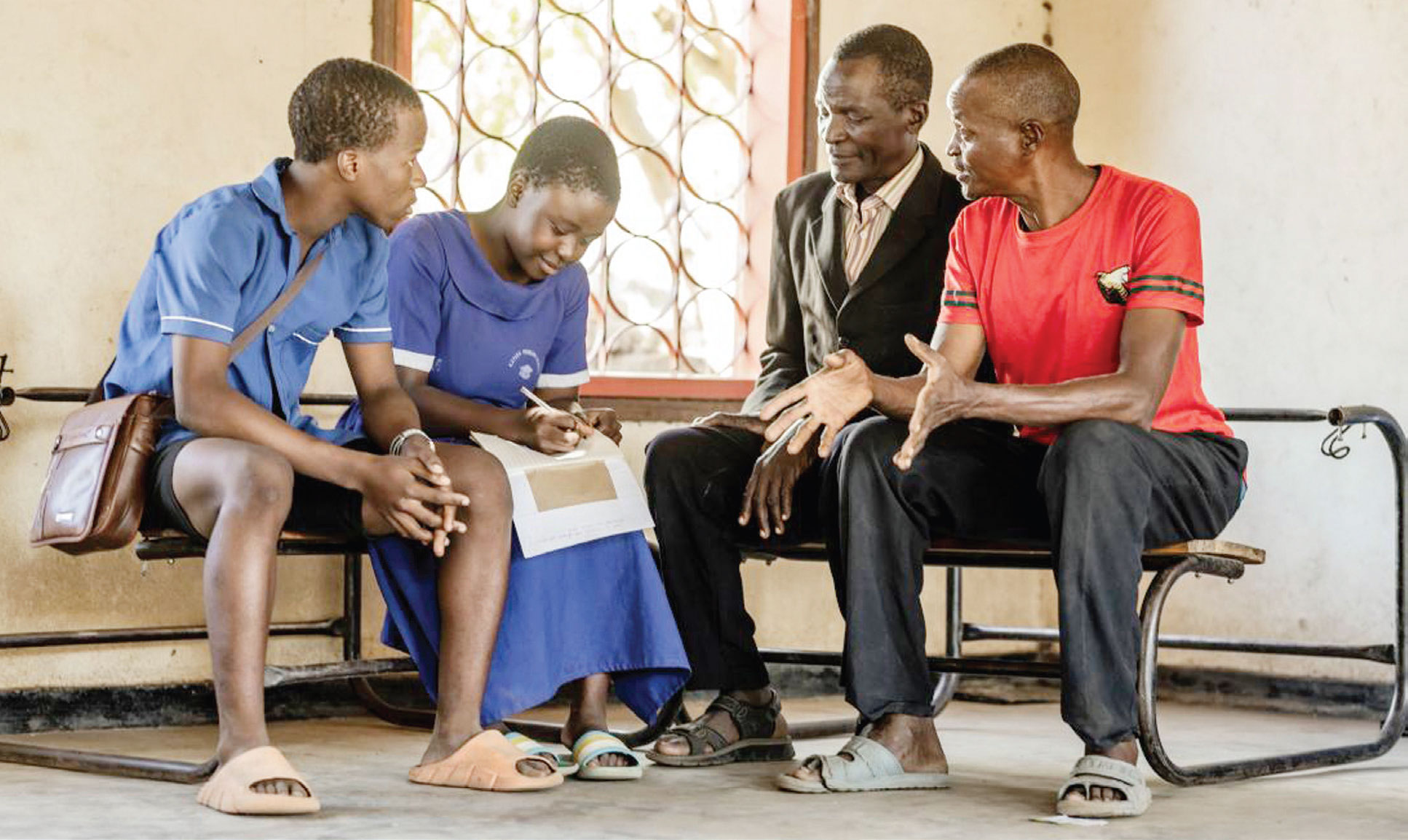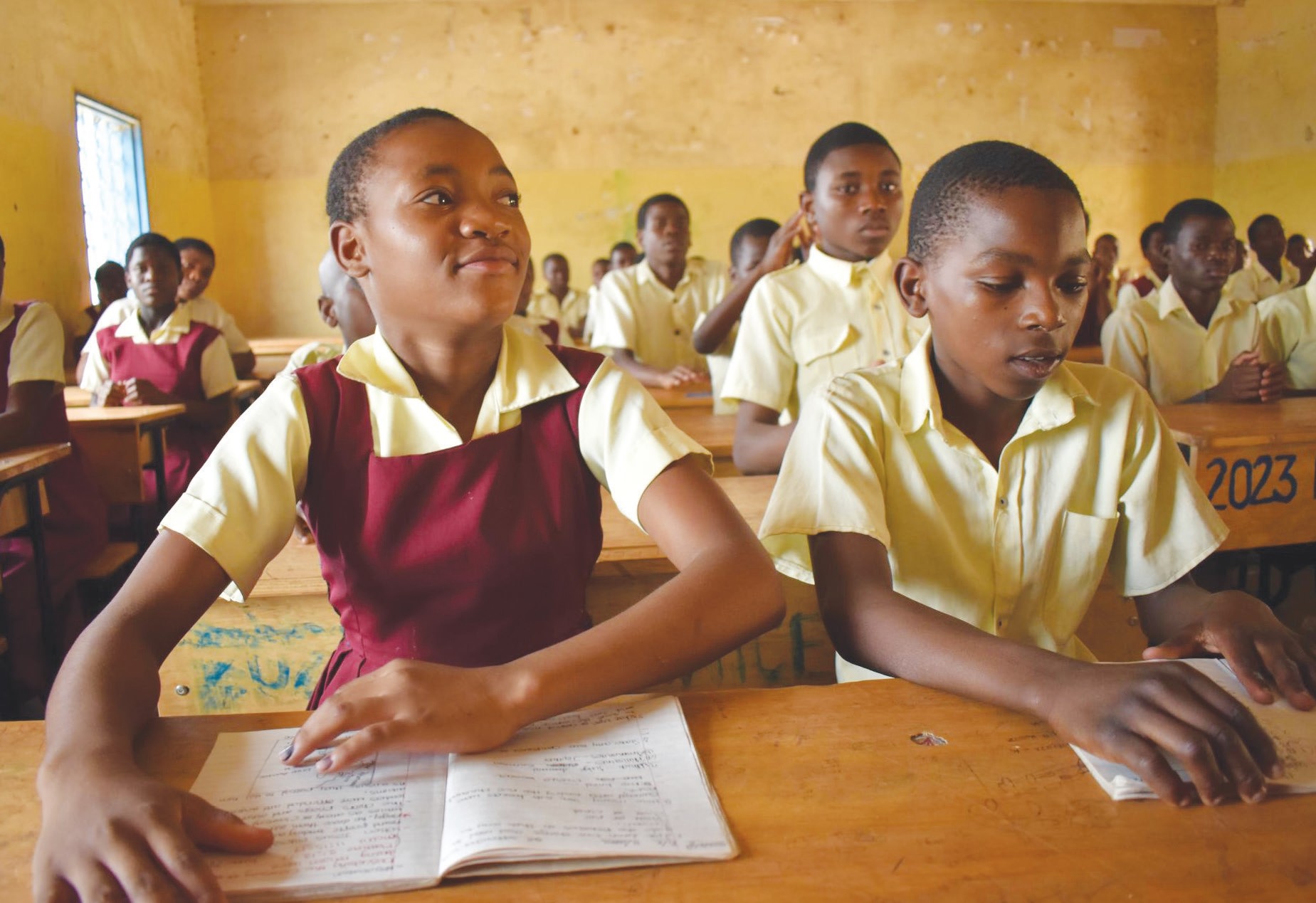Making teaching entertaining
 Behind tales of teachers receiving skimpy salaries late are silent portraits of inspiring workmanship that requires further training to make education more interesting.
Behind tales of teachers receiving skimpy salaries late are silent portraits of inspiring workmanship that requires further training to make education more interesting.
When University of Bedfordshire (Beds) physical education student Michelle Rowe worked at Lizulu Secondary School in Ntcheu 10 years ago, she was inundated by sights of these unpolished gems—the rural heroes selflessly serving congested classrooms with glaring shortage of books, desks and other basic resources.
Interestingly, the Briton returned from her gap year not only wondering if she could continue to build latrines and renovate dilapidated buildings.
But thanks to the help of her tutors and fellow students, the ties climaxed by the construction of a science block have seen her alma mater partnering with St Joseph Teachers Training College (TTC) at Bembeke, Dedza, to help teachers make learning interesting.
This month, Professor Kate Jacques, who was the Pro-Vice Chancellor at Beds campus when she embraced the cause, was in the country along with a delegation of students destined to intermingle with rural teachers.
“I first visited Malawi to open the science block at Lizulu in 2007 which was built after Michelle made a case for more investment in Malawian schools,” says the retired professor who leads the project on behalf of the university. “At that point, I noted that teachers in the country are so devoted even though they lack basic resources. When I asked teachers what we could do for the needy schools, their response was ‘we need more training’.”
According to Jacques, the response so inspired her that on her return to the UK, she applied for a £60 000 (about K14. 4 million at the exchange rate of 2010) from the British Council’s programme aimed at developing learning partnerships with higher education institutions across the world. Her university partnered St Joseph’s after touring Lilongwe TTC and Adventist University as well.
For the past three years, the two institutions have invested in continuing professional development of more than 100 teachers in primary schools surrounding St Joseph’s and Lizulu.
Every April, eight student teachers from the UK fly into Malawi to assist in teaching the courses, focusing on practical learning in English, taught by Paul Gardner; mathematics, taught by Chris Rix and physical education, led by Mark Bowler. On the other hand, 10 Malawian teachers have undergone training at Beds in the past three years.
“We decided to invest in developing teaching skills of rural primary teachers because their colleagues in secondary schools and urban areas are usually better off. Rural classrooms tend to have few resources. Many have no desks and students have to share one book or two. The setting presents serious challenges for teachers with inadequate training,” explained Jacques.
In the country’s primary schools, teaching tends to be traditional—with a majority of teachers standing in front, bombarding pupils with lengthy periods of preachy sessions and copying notes from chalkboards. On the contrary, the new methodologies are demonstrating how group work and using locally available materials can enhance learning.
“We group learners and rearrange the seating plan ensure that they do not only rely on the teacher. We want them to discuss issues and share ideas as they undergo practical lessons,” she says.
Rix, who was in the country between April 5 and 19, was quoted by Bedford’s Life as decrying congestion in the country’s primary classrooms where a teacher serves about 100 pupils at a time national standards require a teacher to serve no more than 60 students.
“Numbers in Malawi primary classes can be as high as 200 to 300 and learning tends to be passive. We are showing them how to engage children using interactive teaching and learning approaches and to make the best use of simple, locally available resources,” he told www.beds.ac.uk in February.
This approach includes using beans for counters, paper for making shapes, sticks for measuring, nsima for exemplifying fractions, acting out dialogues and storytelling in place of books as well as physical education to stimulate team-building, decision-making and leadership skills.
A State-orchestrated initiative of similar nature is sometimes viewed as a ploy to sanitise and conceal cracks caused by low funding towards basic education.
Government faces the imperative task to invest more in early education, but equal attention must be drawn to using easily accessible resources such as nsima which is to Malawian pupils what a cake can be to UK students when it comes to teaching them about fractions.





